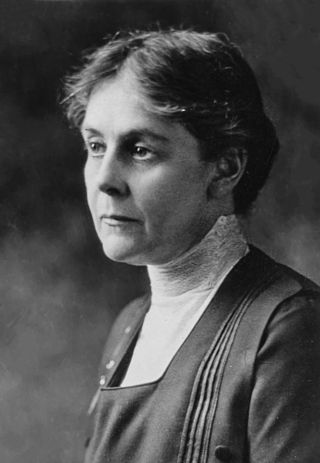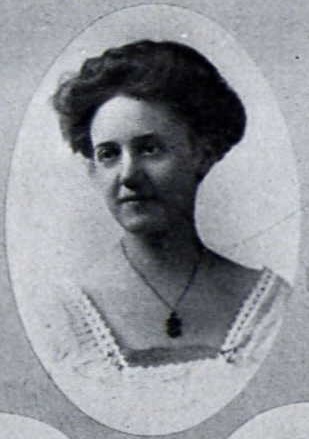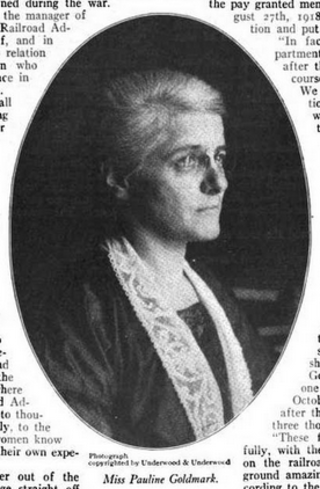Related Research Articles

The Radcliffe Institute for Advanced Study at Harvard University, also known as the Harvard Radcliffe Institute, is an institute of Harvard University that fosters interdisciplinary research across the humanities, sciences, social sciences, arts, and professions. It is the successor institution to the former Radcliffe College, originally a women's college connected with Harvard.

Alice Hamilton was an American physician, research scientist, and author. She was a leading expert in the field of occupational health, laid the foundation for health and safety protections, and a pioneer in the field of industrial toxicology.

The Johns Hopkins Bloomberg School of Public Health is the public health graduate school of Johns Hopkins University, a private research university in Baltimore, Maryland. As the second independent, degree-granting institution for research in epidemiology and training in public health, and the largest public health training facility in the United States.

The Arthur and Elizabeth Schlesinger Library on the History of Women in America is a research library at the Radcliffe Institute for Advanced Study at Harvard University. According to Nancy F. Cott, the Carl and Lily Pforzheimer Foundation Director, it is "the largest and most significant repository of documents covering women's lives and activities in the United States".
Lynn R. Goldman is the Dean of the Milken Institute School of Public Health at George Washington University. She is an American public health physician, a pediatrician and an epidemiologist.
Eleanor Flexner was an American independent scholar and pioneer in what was to become the field of women's studies. Her book Century of Struggle: The Woman's Rights Movement in the United States, originally published in 1959, relates women's work for the vote to other 19th- and early 20th-century social, labor, and reform movements, most importantly the push for equal education, the abolition of slavery, and temperance laws.
Lisa A. Cooper is an American internal medicine and public health physician who is the Bloomberg Distinguished Professor of Equity in Health and Healthcare at Johns Hopkins University, jointly appointed in the Johns Hopkins School of Medicine, Johns Hopkins School of Nursing and in the departments of Health, Behavior and Society, Health Policy and Management; Epidemiology; and International Health in the Johns Hopkins Bloomberg School of Public Health. She is the James F. Fries Professor of Medicine in the Division of General Internal Medicine, Director of the Johns Hopkins Center for Health Equity, and Director of the Johns Hopkins Urban Health Institute. Cooper is also a Gilman Scholar and a core faculty member in the Welch Center for Prevention, Epidemiology, and Clinical Research. She is internationally recognized for her research on the impact of race, ethnicity and gender on the patient-physician relationship and subsequent health disparities. She is a member of the President’s Council of Advisors on Science and Technology (PCAST). In 2007, she received a MacArthur Fellowship.

Muriel Sutherland Snowden was the founder and co-director of Freedom House, a community improvement center in Roxbury, Massachusetts. She is, together with her husband Otto P. Snowden, a major figure in Boston history and activism.
Anna Medora Baetjer was an American physiologist and toxicologist, known for her research into the health effects of industrial work on women and for her discovery of the carcinogenic properties of chromium.

Elizabeth Bancroft Schlesinger was an American suffragist, civic leader, feminist, and pioneer in the field of women's history.
Kay Dickersin is an academic who trained first in cell biology and subsequently epidemiology. She went on to a career studying factors that influence research integrity, in particular publication bias and outcome reporting bias. She is retired Professor Emerita in the Department of Epidemiology at Johns Hopkins Bloomberg School of Public Health where she was Director of the Center for Clinical Trials and Evidence Synthesis there. She was also Director of the US Cochrane Center and the US Satellite of the Cochrane Eyes and Vision Group within the Cochrane Collaboration. Dickersin received multiple awards for her research.
Vilma Rose Hunt was a scientist noted for research into radiation and workplace safety for women. After beginning a dentistry career in Australia and New Zealand, Hunt traveled to the United States where she earned her A.M. in Physical Anthropology at Radcliffe College and began researching public health and radiation biology. In 1964, Hunt discovered that polonium 210 is a natural contaminant of tobacco, providing additional evidence for the link between smoking and bronchial cancer. In 1974, she wrote a 121-page report on workplace hazards for pregnant women, which made the front page of the New York Times. She published a book, Work and the Health of Women, in 1979. From 1979 to 1981, Hunt served as an administrator for the United States Environmental Protection Agency, enacting public health solutions to environmental contamination at sites like Love Canal, New York, and Three Mile Island Nuclear Generating Station, Pennsylvania. Hunt retired in Gloucester in 1985, though she served as an environmental consultant and visiting lecturer until her death.
Joseph Kovner was a 20th-century American lawyer and government official, best known as assistant general counsel to Lee Pressman for the Congress of Industrial Organizations (CIO) in the 1930s and 1940s and then attorney with the Justice Department.

Pauline Dorothea Goldmark was American social reformer, focused on equal pay and the health aspects of women's work.
Helen Abbey was an American biostatistician known for her research on the health effects of radiation and on infections among Native Americans, and for her prolific mentoring of students in statistics. She was affiliated with Johns Hopkins University for over 50 years.
Ellen J. MacKenzie is the dean of the Johns Hopkins Bloomberg School of Public Health. She is an expert in trauma care and health policy and management, and an elected fellow of the National Academy of Medicine.
Lydia Holman (1868–1960) was an American nurse who dedicated her life to promoting rural public health. She worked as a nurse and provided social services in the community in Mitchell County, North Carolina. She also served in the United States Army Nurse Corps during the Spanish-American War.
Georgia Shuset Litwack was born in January 27 in Pennsylvania. She was an American photographer and photojournalist, best known for her portraits of notable women in the arts, science and technology.

Jessica Fanzo is an American scientist. She is the Bloomberg Distinguished Professor of Global Food and Agriculture Policy and Ethics at the Johns Hopkins Berman Institute of Bioethics, the Bloomberg School of Public Health, and the Paul H. Nitze School of Advanced International Studies. Prior to coming to Johns Hopkins, Fanzo was an assistant professor of Nutrition in the Institute of Human Nutrition and Department of Pediatrics at Columbia University. In January 2023, Columbia announced that Fanzo will rejoin its faculty as a professor in the Columbia Climate School.
Joanne Katz is an epidemiologist, biostatistician, and Professor of International Health at the Johns Hopkins Bloomberg School of Public Health. She holds joint appointments in the Departments of Biostatistics, Epidemiology and Ophthalmology. Her expertise is in maternal, neonatal, and child health. She has contributed to the design, conduct and analysis of data from large community based intervention trials on nutritional and other interventions in Indonesia, Philippines, Bangladesh, Nepal and other countries.
References
- ↑ Ellen K. Silbergeld Papers
- ↑ "Obituaries: Mary Helen Gion Kovner". Washington Post. 5 September 1992. Retrieved 23 September 2017.
- ↑ Oakes, Elizabeth H., ed. (2007). "Silbergeld, Ellen Kovner". Encyclopedia of World Scientists. Infobase Publishing. pp. 667–668. ISBN 9781438118826 . Retrieved 23 September 2017.
- ↑ "Silbergeld, Ellen K.. Papers of Ellen K. Silbergeld, 1968-1994". Schlesinger Library, Radcliffe Institute, Harvard University. 2007. Retrieved 23 September 2017.
- ↑ "Women in Science - Hall of Fame". Archived from the original on 2010-03-08. Retrieved 2010-04-16.
- 1 2 3 "Johns Hopkins Bloomberg School of Public Health Faculty - Ellen Silbergeld". Archived from the original on 2010-06-13. Retrieved 2010-04-16.
- ↑ Environmental Research - Editorial Board
- ↑ "MacArthur Foundation - Fellows List: S". Archived from the original on 2006-09-28. Retrieved 2006-08-11.
- ↑ Kim, Sarah Y. "Author talks dark side of industrial farming – The Johns Hopkins News-Letter" . Retrieved 2016-12-27.